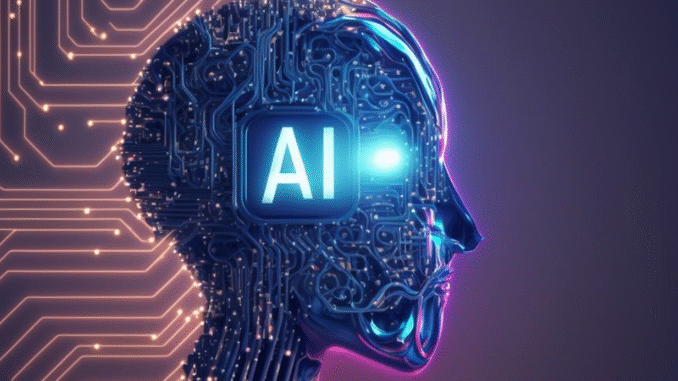
Introduction
Artificial Intelligence (AI) is no longer just a futuristic concept—it’s a present reality reshaping industries worldwide. Among all sectors, healthcare stands out as one of the most profoundly impacted. From predicting diseases to assisting surgeries and personalizing patient care, AI is revolutionizing how we understand, diagnose, and treat medical conditions.
In this article, we’ll explore how AI is transforming healthcare, the technology behind it, the ethical considerations, and what the future might hold for AI-driven medicine.
1. What Is AI in Healthcare?
AI in healthcare refers to the use of machine learning algorithms and software to analyze complex medical data. It enables systems to learn patterns, interpret results, and make predictions—all without direct human instruction.
Some of the most common applications include:
- Medical imaging analysis (e.g., detecting tumors in scans)
- Predictive analytics for disease outbreaks
- Virtual nursing assistants and chatbots
- Robot-assisted surgeries
- Personalized treatment recommendations
AI helps doctors and researchers process massive amounts of data faster and more accurately than ever before.
2. AI in Diagnostics: Detecting Disease Early
One of the most impactful uses of AI is in diagnostics. AI algorithms trained on millions of medical images can identify patterns invisible to the human eye. For instance:
- Google’s DeepMind developed an AI that can detect over 50 eye diseases with accuracy comparable to expert ophthalmologists.
- IBM Watson Health assists in analyzing patient data to suggest possible diagnoses and treatment options.
This kind of precision allows for earlier detection of diseases like cancer, heart conditions, and neurological disorders—potentially saving countless lives.
3. AI-Powered Medical Imaging
Medical imaging generates massive datasets—X-rays, CT scans, MRIs—that can be time-consuming for radiologists to interpret. AI can:
- Highlight suspicious areas automatically
- Reduce diagnostic errors
- Speed up image review
For example, AI systems can flag early signs of breast cancer in mammograms or spot lung nodules in CT scans long before symptoms appear. This improves both accuracy and efficiency in patient care.
4. Predictive Analytics and Preventive Healthcare
AI also plays a major role in predicting diseases before they occur. Using historical health data, AI can forecast a patient’s risk for chronic conditions such as diabetes or heart disease.
Hospitals and insurance companies use these insights to:
- Promote preventive care
- Optimize resource allocation
- Reduce treatment costs
Predictive AI isn’t just reactive—it’s proactive. It helps doctors intervene earlier, preventing diseases from becoming life-threatening.
5. Personalized Medicine: Tailoring Care for Every Patient
Every individual’s biology and genetics are unique. Traditional medicine often applies a “one-size-fits-all” approach, but AI enables precision medicine—customizing treatments based on a patient’s DNA, lifestyle, and medical history.
For example:
- AI can analyze genetic mutations to identify which cancer drugs will be most effective.
- Machine learning models can adjust medication dosages based on patient response patterns.
This level of personalization leads to better outcomes and fewer side effects, transforming how we treat diseases.
6. AI in Surgery and Robotics
AI-powered robotic systems are assisting surgeons in performing complex procedures with enhanced precision and minimal invasiveness.
The da Vinci Surgical System, for example, allows doctors to operate using robotic arms that offer more flexibility than human hands. Meanwhile, AI algorithms guide the surgeon in real-time, improving safety and reducing recovery times.
In the future, fully autonomous robotic surgeries may become a reality—especially in remote or emergency scenarios.
7. AI for Drug Discovery and Development
Developing a new drug can take up to 10 years and cost billions of dollars. AI dramatically accelerates this process by:
- Simulating molecular interactions
- Identifying promising compounds
- Predicting potential side effects early
During the COVID-19 pandemic, AI was instrumental in identifying potential treatments and vaccine candidates. Pharmaceutical companies now rely heavily on AI tools to speed up research and clinical trials.
8. Ethical and Privacy Concerns
Despite the advantages, AI in healthcare raises serious ethical questions:
- Data Privacy: Patient data must be protected against misuse or breaches.
- Bias: If algorithms are trained on biased datasets, they may produce unfair or inaccurate results.
- Accountability: When AI makes a medical error, who is responsible—the developer, the doctor, or the machine?
Establishing transparent AI systems and strong data governance frameworks is essential to build trust in AI-driven healthcare.
9. The Future of AI in Medicine
The future of AI in healthcare looks promising. We’ll likely see:
- Virtual hospitals where AI monitors patients remotely.
- Voice-based AI assistants supporting doctors in real-time.
- AI-integrated wearables that detect diseases before symptoms appear.
As computing power increases and data collection improves, AI will continue to evolve—helping humanity achieve longer, healthier lives.
Conclusion
Artificial Intelligence is redefining the way we think about healthcare. It’s not replacing doctors—it’s empowering them. By combining human expertise with machine precision, we are entering a new era of medicine that’s faster, more accurate, and more compassionate.
From diagnosis to drug discovery, AI holds the power to make healthcare smarter, more affordable, and accessible for everyone.

Leave a Reply